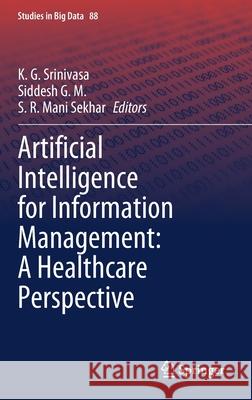Artificial Intelligence for Information Management: A Healthcare Perspective » książka
topmenu
Artificial Intelligence for Information Management: A Healthcare Perspective
ISBN-13: 9789811604140 / Angielski / Twarda / 2021 / 329 str.
Kategorie:
Kategorie BISAC:
Wydawca:
Springer
Seria wydawnicza:
Język:
Angielski
ISBN-13:
9789811604140
Rok wydania:
2021
Wydanie:
2021
Numer serii:
000472346
Ilość stron:
329
Waga:
0.65 kg
Wymiary:
23.39 x 15.6 x 2.06
Oprawa:
Twarda
Wolumenów:
01
Dodatkowe informacje:
Wydanie ilustrowane











